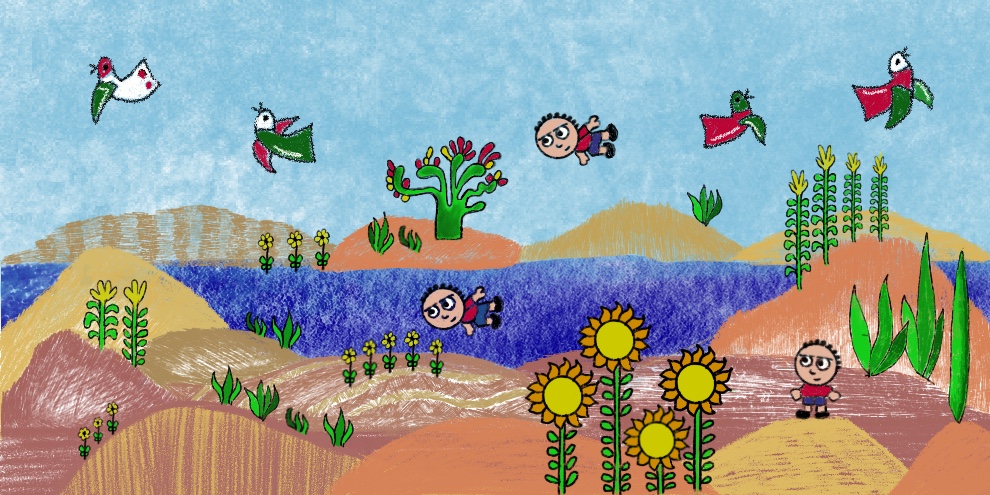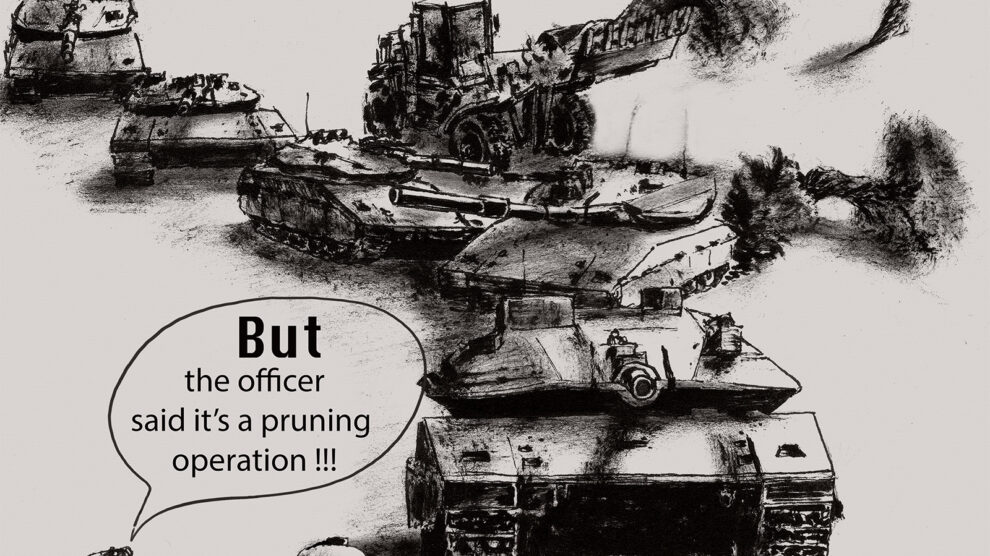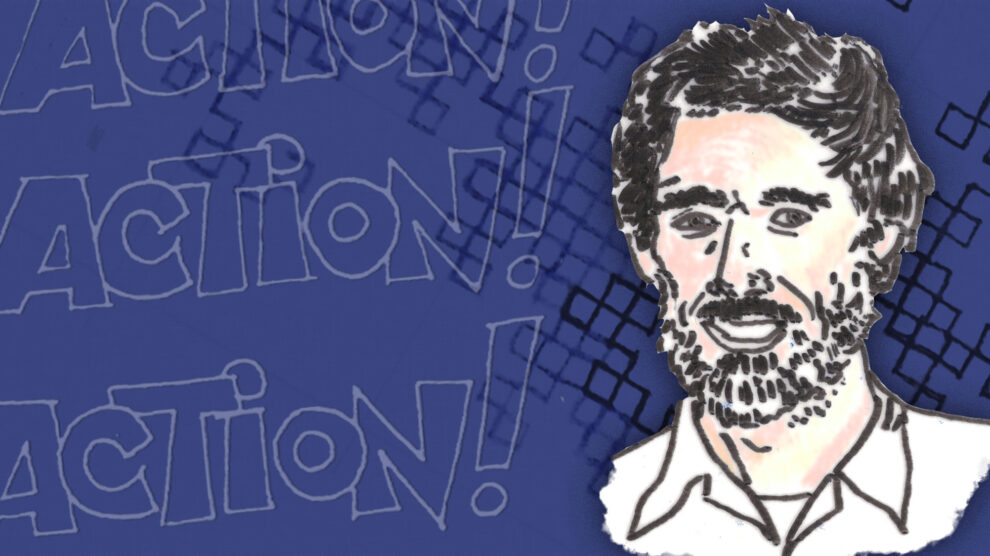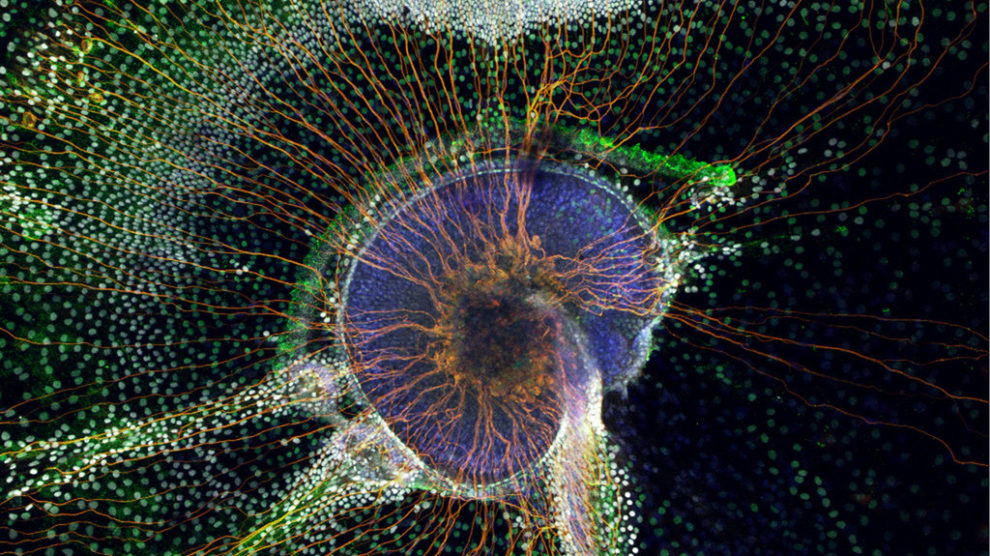Education Under Siege: The Deliberate Destruction of Palestine’s Intellectual and Cultural Future
By Aisling Walsh
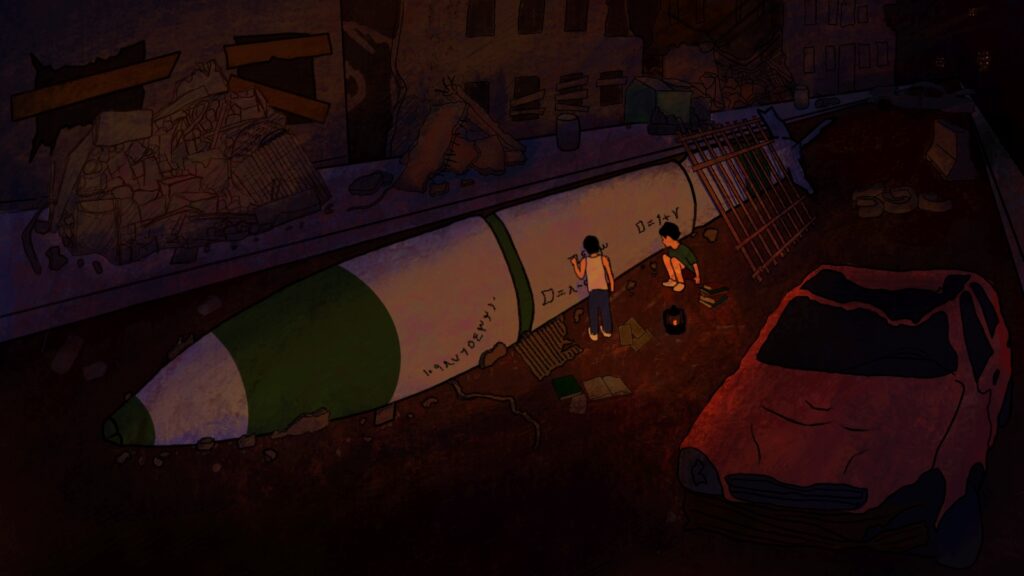
“In Palestine, education is a tool for liberation,” says Dr. Salah Al Zaro, Dean of Education at Hebron University, in an interview with the author in late May.1 “It’s the most powerful passport they [Palestinians] can carry, you know, because of the loss of land, because of Nakba, because of 1967, because of the harsh economic situation.” But, argues Dr. Al Zaro, education in Palestine is also considered dangerous by those determined to maintain the subjection of the Palestinian territory and people: “Through education you will provide awareness for the people and the people will understand their responsibility and their rights and will move to get their rights.”
It is for this reason, he explains, that education and learning in Palestine have always—from the time of the British Mandate to the ongoing Israeli occupation–been subject to external control as well as the target of restrictions, violence, and destruction. But, as the current crisis in Gaza stretches towards the ninth month, with no apparent end in sight, education in Palestine has faced unprecedented disruption.
Education and Learning Under Attack
Schools and universities in Gaza have not functioned, except for use as emergency shelters, since October 2023. Educational and learning infrastructure–including schools, universities, archives, libraries, and even bookshops–have been directly targeted by Israeli bombardments, deliberate demolition, and vandalism. According to the UN Office for the High Commission on Human Rights (OHCHR), an estimated 625,000 children in Gaza have lost a full year of schooling. Over 7,819 students and 756 teachers have been injured, and 5,479 students, 261 teachers, and 95 university professors have been killed in Gaza.2 Many internationally recognised scientists, academics, and writers are among the dead, including Prof. Sufyan Tayeh, the president of the Islamic University, and Prof. Refaat Alareer, poet and founder of the organisation We Are Not Numbers.3
Meanwhile, in the West Bank, students at all levels and academic staff have faced disruption and interruptions throughout the school year as well as increased harassment, arrests and assassinations.4 Many scholars, academic groupings, universities, and the UN have warned that the current onslaught on Gaza and the deliberate destruction, in whole or in part, of all Gaza’s universities constitutes Scholasticide. This is understood by the OHCHR as the systemic obliteration of education through the arrest, detention or killing of teachers, students, and staff, and the destruction of educational infrastructure. Further destruction has been caused to public libraries, mosques, churches, and the Gaza Central Archives, a repository of 150 years of Palestinian history.5 The scale of this destruction evidences a disregard for a system of human rights and international law which is meant to safeguard education and educational infrastructure in situations of armed conflict. The deliberate targeting of educational infrastructure is a breach of International Humanitarian Law, and South Africa, in its recent petition to the International Court of Justice, stated that this represents an attempt to destroy “Palestinian life in Gaza,” as well as “Gaza’s future academic and cultural potential.”6 The current backlash against the United Nations Relief and Works Agency for Palestine Refugees (UNRWA) further threatens education in Palestine. The UNRWA has an essential role in education and currently provides up to 53 percent of basic education to Palestinian refugees in Gaza and the West Bank.7
While the suspension of funding from key donors has had the immediate effect of severely limiting food and medical aid to Gaza, long-term suspension of aid to UNRWA or its complete cancellation would have a disastrous effect on education in Palestine.8 The desire of the Israeli regime to eliminate the UNRWA and its presence/influence in the occupied territories has long been documented, not least because it continues to give Palestinian refugees hope regarding their right to return. If the agency ceases to exist, or continues to experience the loss of major donors, the long-term ability to provide education in Gaza in the aftermath of the war will be severely impacted.9 The culmination of attacks on students, staff, and the entire educational, learning, and archival infrastructure could constitute an act of epistemicide, part of an ongoing effort to erase Palestinian systems of knowledge and cultural reproduction.10 While the current onslaught against Gaza is unprecedented in its unrestrained use of force against and targeting of the civilian population, the attack on education and learning by Israel is nothing new. Rather, the deliberate suppression of education and learning in Palestine is a strategy of the occupation which has its roots in the settler-colonial project.
Censorship of Palestinian Scholarship in Western Media and the Academy
The direct attacks against education and learning in Palestine have been accompanied by systematic, and sometimes violent, attempts to silence Palestinian voices and their allies across Europe and North America and to prevent teaching or sharing of Palestinian history and narratives. Colleagues from Birzeit University highlighted how a teach-in at Vienna University about Palestine was cancelled by university authorities.11 The Palestinian writer and academic Adania Shibli, who was due to receive a prize at the Frankfurt Book Fair in November, was among the first Palestinians to be publicly cancelled when the book fair announced it was “suspending” the presentation of the award.12 Dr. Ghassan Abu Sitta, a British-Palestinian surgeon who worked in Gaza hospitals following the outbreak of the current war, was denied entry to speak in Germany and subsequently detained at an airport in France when due to speak at the French senate about his experiences in Gaza.13
Most recently, the Palestinian human rights lawyer and academic, Noura Erakat, shared on X (formerly Twitter) how an interview segment with the German DW news service has been scrubbed from the internet.14 Erakat argues that is was likely because she expressed views about the ongoing genocide and Israel as an apartheid state that both the interviewer and producer objected to. Many pro-Palestinian academics across North America and Europe have also been publicly criticised, had events cancelled and or been suspended from academic duties. These include high profile Jewish academics such as Judith Butler and Nancy Fraser.15 Pro-Palestinian protests across US university campuses have been violently removed by local police. Judith Butler has characterised the attempts to suppress dissent and silence alternative narratives about Palestine as a crisis of academic freedom “as acute as any since the McCarthy years in the United States.”16 The attempts to destroy or control the nature of what can be spoken or taught about Palestine, both in the Occupied Territories and the wider world, represent, according to Dr. Al Zaro, an attempt to “avoid revolutionary education.” But those attempts are becoming increasingly desperate as public narratives around Palestine begin to change and a critical mass of ordinary people, as well as intellectuals, are demanding a ceasefire and, increasingly, an end to the occupation.
Scholasticide as an Element of Genocide
Accusations of potential war crimes in the targeting of educational infrastructure are, unfortunately, not new in Gaza. As far back as 2014, Amnesty International and Human Rights Watch have demanded investigations into potential war crimes from targeting schools during the conflict.17 Epistemicide and scholasticide are integral to settler-colonial projects and the genocidal violence of colonisation.
Attacking archives, both public and private, is a colonial strategy dating back to the earliest years of European colonial expansion. The very same year that Columbus set sail for the territories now known as the Americas, 1492, an internal colonisation took place in Spain through the vast expulsion of the Arab population from Al-Andalus (now known as Andalusia).18 Alongside genocidal acts of violence and mass displacement, the Spanish destroyed libraries and publicly burned millions of books. In the Americas, the Mayan codices, the historical record of the civilisation pertaining to astronomy, spirituality, law, culture, and gastronomy were systematically destroyed by the Spanish in the late 15th century and early 16th century.19 The few surviving codices were stolen and ended up in museums in Spain, France, and Germany. The destruction of books, archives, and historical records is part of an imperial strategy to erase a people from existence by targeting their memory and their history and undermining their systems and transmission of knowledge. This strategy would be used by European powers throughout the following five centuries of European imperialism to suppress or annihilate indigenous peoples. In Palestine, this latest wave of archival looting and destruction mirrors the 1948 Nakba, where archives were plundered and destroyed in order to erase evidence of the Palestinian presence in the newly occupied territory.20
Education as Resistance
Education in Palestine was a national and cultural priority long before the original Nakba of 1948 and has continued to be a source of national pride and resistance in the face of ongoing colonisation and occupation.21 Education has become central to resisting the displacement, dispossession, and attempted erasure of the Palestinian people, along with the destruction of their society, culture, identity, and political rights. Following the 1948 Nakba, one of the first actions displaced Palestinians undertook was to create schools in the refugee camps across Gaza, the West Bank, Jordan, and Lebanon.22 With education and learning playing such a central role in Palestinian life, Israel has repeatedly sought to disrupt and undermine education in Gaza and the West Bank, a strategy that has been widely documented in multiple reports from human rights organisations, including UNRWA and the Norwegian Refugee Council. Harassment and arrest of students and staff from primary school through to university are everyday occurrences.23 There are frequent armed attacks on educational infrastructure and against staff and students, often resulting in deaths, and schools across rural areas of the West Bank are frequently demolished. Dr. Al Zaro describes this situation as “normal life under occupation.”
What is less discussed is how colonisation and the ongoing occupation have shaped the very nature of education in Palestine. From the Ottoman regime, through to the British Mandate, Jordanian rule, the Israeli occupation, and even under the Palestinian Authority, the Palestinian education system and curricula have been designed by outside powers who aim to undermine the cause of Palestinian self-determination. This means, according to Dr. Al Zaro, that Palestinian education has historically been very conservative, or politically neutral, rather than liberatory, focused on maintaining the status-quo and not questioning the occupation, nor teaching Palestinian history. He explains how, during the First Intifada, when schools were closed, Palestinians attempted to create spaces for popular education in Mosques and Churches but these were quickly repressed and many of the people leading these initiatives were arrested. It remains a dangerous endeavour to engage in more liberatory approaches to education, says Dr. Al Zaro: “Nobody here talks about Paolo Freire [Pedagogy of the Oppressed] and the relationship between the oppressor and the oppressed because it’s against the rules.”24
Rebuilding Our World, Rebuilding Education
Even if a ceasefire was called tomorrow, it will take years, potentially decades, for life in Gaza to recover. In the meantime, academics like Dr. Al Zaro and colleagues at Birzeit University are working to support displaced Gazans who wish to continue their university education remotely.25 An-Najah National University, in partnership with the Union of Mediterranean Universities (UNIMED) and the Palestinian Student Scholarship Fund, launched the Technical Education Support for Higher Education Students (TESI) in February 2024.26
Dr. Al Zaro points out that, for now, only those who have managed to leave Gaza can access these supports. Those who remain are too focused on the daily struggle for survival to have the time or means to connect to virtual classes.
These emergency measures are important if or when a ceasefire does happen; education will be key to the recovery of life in Gaza as it is, according to Dr. Al Zaro, “the pillar of the society” and key to “rebuilding our nation.” The damage, however, is so immense–and in terms of the loss of life, irreparable–that rebuilding education and learning in Gaza means starting from scratch across all levels. And, for education to be truly liberatory for the Palestinian people, beyond the idea that education is solely a means for improved economic opportunities, Palestinians deserve the right to shape the nature and content of their own education, where the history of struggle and resistance is present.
Meet the contributor:
Aisling Walsh, PhD: Aisling Walsh (she/her) is queer and neurodivergent writer and researcher. She holds PhD in sociology from the University of Galway focusing on the reproduction of sexualised and racialised orders of violence under colonial regimes. Her work has been published in The Guardian, Al Jazeera, The Irish Times, Jezebel, Electric Literature, Literary Hub and others.
Notes
- Dr. Al Zaro was the president of Hebron University for six years from 2015 and is vice president of the Higher Education Council in Palestine.
- “UN Experts Deeply Concerned over ‘Scholasticide’ in Gaza,” OHCHR, April 18, 2024, https://www.ohchr.org/en/press-releases/2024/04/un-experts-deeply-concerned-over-scholasticide-gaza.
- “Israel Kills Dozens of Academics, Destroys Every University in the Gaza Strip,” EuroMed Human Rights Monitor, January 20, 2024, https://euromedmonitor.org/en/article/6108Some; Alberto Toscano, “The War on Education—in Gaza and at Home,” In These Times, February 15, 2024, https://inthesetimes.com/article/campus-wars-gaza-higher-ed-christopher-rufo.
- “Children Suffer as Education Under Attack in the West Bank and Gaza,” ReliefWeb, February 1, 2024, https://reliefweb.int/report/occupied-palestinian-territory/children-suffer-education-under-attack-west-bank-and-gaza.
- OHCHR, “Scholasticide.”
- Application of the Convention on the Prevention and Punishment of the Crime of Genocide in the Gaza Strip (South Africa v. Israel), Application, 192-20231228-APP-01-00-EN, International Court of Justice (December 21, 2023) https://www.icj-cij.org/node/203394
- “UNRWA Education 2030 Baseline Report,” UNRWA, 2023,
https://www.unrwa.org/sites/default/files/content/resources/web_unrwa_education_2030_baseline_report.pdf. - Mat Nashed, “What’s behind Israel’s Decision to Target UNRWA?” Al Jazeera, January 31, 2024, https://www.aljazeera.com/features/2024/1/31/israels-allegations-unrwa-effort-eliminate-agency.
- Nashed, “UNWRA.”
- Abdulla Moaswes, “The Epistemicide of the Palestinians: Israel Destroys Pillars of Knowledge,” Institute for Palestine Studies, February 2, 2024, https://www.palestine-studies.org/en/node/1655161.
- “Letter in Protest of University of Vienna’s Cancellation of Events on Palestine and Further Censorship,” Birzeit University, accessed July 16, 2024, https://www.birzeit.edu/en/the-world-sides-with-gaza/letter-protest-university-viennas-cancellation-events-palestine-and.
- John Freeman, “In the Last Four Weeks Language Has Deserted Me’: Adania Shibli on Being Shut down,” The Guardian, November 9, 2023, https://www.theguardian.com/books/2023/nov/09/palestinian-author-adania-shibli-frankfurt-book-fair.
- “Palestinian Doctor Ghassan Abu-Sitta Denied Entry into France,” Al Jazeera, May 4, 2024, https://www.aljazeera.com/news/2024/5/4/palestinian-doctor-ghassan-abu-sitta-says-he-was-denied-entry-to-france.
- Noura Erakat (@4noura), “Yesterday I did an interview with @dwnews – a German outlet about Norwegian, Irish, and Spanish recognition of Palestinian statehood. It did not go well,” X, May 23, 2024, https://x.com/4noura/status/1793634059564040691.
- Nancy Fraser and Hanno Hauenstein, “Nancy Fraser: Germany Canceled Me for Supporting Palestine,” Jacobin, April 9, 2024, https://jacobin.com/2024/04/nancy-fraser-germany-palestine-letter.
- Judith Butler, “There Can Be No Critique,” Verso, April 16, 2024, https://www.versobooks.com/blogs/news/there-can-be-no-critique.
- “Israel/Gaza: Attack on UN School in Gaza a Potential War Crime That Must Be Investigated,” Amnesty International, July 30, 2014, https://www.amnesty.org/en/latest/news/2014/07/israelgaza-attack-un-school-gaza-potential-war-crime-must-be-investigated/; “Israel: In-Depth Look at Gaza School Attacks,” Human Rights Watch, September 11, 2014, https://www.hrw.org/news/2014/09/11/israel-depth-look-gaza-school-attacks.
- Steffani Garcia. “The Fate of the Moriscos: The Last Remnants of Islam in Spain after the Reconquista,” Middle East Eye, June 9, 2023, https://www.middleeasteye.net/discover/spain-moriscos-islam-last-remnants-after-reconquista.
- Rhea Nayyar, “Mayan Codex, Americas’ Oldest Surviving Book, Goes on View in LA,” Hyperallergic, October 24, 2022, http://hyperallergic.com/773143/mayan-codex-getty-museum-los-angeles/.
- Librarians and Archivists with Palestine, “Israeli Damage to Archives, Libraries, and Museums in Gaza, October 2023–January 2024,” February 1, 2024, https://librarianswithpalestine.org/gaza-report-2024.
- Anne Irfan, “Why Palestinians Are Known as the World’s ‘Best Educated Refugees’” Columbia University Press Blog, August 23, 2023, https://cupblog.org/2023/08/23/why-palestinians-are-known-as-the-worlds-best-educated-refugeesanne-irfan/.
- Irfan, “Refugees.”
- UNRWA, “Schools on the Front Line: The Impact of Armed Conflict and Violence on UNRWA Schools and Education Services,” May 22, 2016, https://www.unrwa.org/resources/reports/schools-front-line-impact-armed-conflict-and-violence-unrwa-schools-and-education; Ritesh Shah, Anran Zhao, and Liyun (Wendy) Choo, “Learning on the Margins,” Norwegian Refugee Council, June 24, 2021, https://www.nrc.no/resources/reports/learning-on-the-margins/.
- . Dr. Al Zaro highlights that discussing Paolo Freire’s ideas, particularly those from his book Pedagogy of the Oppressed that explore the dynamics between oppressors and the oppressed, would be discouraged or even forbidden. This implies that educational environments might restrict certain critical or radical educational philosophies that challenge established norms or power structures.
- “Rebuilding Hope” Birzeit University’s Initiative to Aid the Students and Higher Education Institutions in Gaza,” Birzeit University, March 14, 2024, https://www.birzeit.edu/en/news/rebuilding-hope-birzeit-universitys-initiative-aid-students-and-higher-education-institutions.
- Petra Ayar Jahchan, “UNIMED, Arab Universities Provide Crucial Educational Support for Gaza, but Need Help,” Al-Fanar Media, July 23 2024, https://www.al-fanarmedia.org/2024/07/unimed-arab-universities-provide-crucial-educational-support-for-gaza-but-need-help/.


